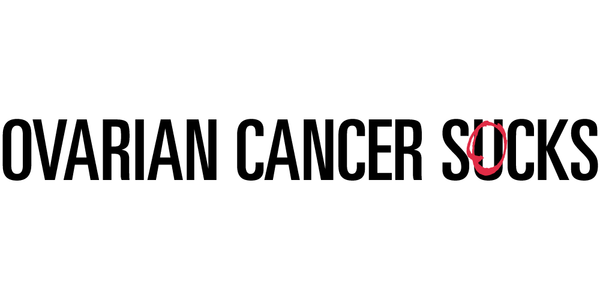
It’s difficult to express how much Leane meant to those who knew her. Her radiant presence lifted the mood in every room she entered. Leane’s personal warmth, storytelling ability and drive made her a force of nature in the fight against ovarian cancer.
Time that is unbelievably precious.
My name is Leane Flynn and I was diagnosed with ovarian cancer aged 49 years in April 2017. It came as a complete shock, as I was otherwise extremely healthy.
I am the mother of three beautiful daughters, and I’m fiercely determined to see outcomes for ovarian cancer detection and treatment change for their generation of women and beyond. I am determined that the same wonderfully high survivability rates realised by other cancers, such as breast and prostate, be realised for ovarian cancer, the cancer I’ve come to learn is the most lethal reproductive cancer. The cancer that will one day take my life.
What started as a routine visit to my GP to confirm what I thought were signs of menopause ended with me being told I had a large tumour on each ovary and another tumour growing between my liver and diaphragm. Once you have heard the words “you have cancer”, life is never the same again.
After a large 12-hour operation it was discovered that I had Stage 3C Advanced Serous Ovarian Cancer.
Due to a lack of funding and research, I was then told that treatment options hadn’t changed for 30 years and that my prognosis was just a 20% chance of five-year survival.
This was a lot to comprehend and, really, at that point I was just focused on getting through each day. I had a great response to the six months of chemotherapy that followed surgery, so I was optimistic that the cancer was gone. Unfortunately, this optimism was misplaced because the cancer returned just four months later. Since that time, I have been in constant treatment with a further four different chemotherapy combinations and some other – mostly trial – treatments along the way.
I have been told that the cancer is incurable and that I am terminal. There is no hope of remission or a cure. My cancer is not genetic, they don’t know what has caused it. This is frightening because with no early detection test and very vague symptoms, it means that all women and girls are vulnerable.
I was also told, in January 2022, that I had as little as two days to live. My family and close friends were encouraged to gather and say their goodbyes, my funeral was being planned.
This came amid a harrowing ten-weeks in hospital where I was operated on five times in 10 days. The first operation spanned two separate 12-hour marathon sessions by the surgeon, between which I was kept open under anesthetic for 24-hours. This allowed the surgical team to rest and recover so they could complete the delicate job of removing around 40 cancerous nodes from my bowel, which were causing obstructions and significant pain. Fortunately, I came to learn that these nodes were also keeping me alive as their formation allowed for them to be removed – any other cancerous formations, elsewhere, would likely have been fatal.
I was told that stitching up my insides following the removal of these cancers was like stitching together wet, soggy paper. The days that followed required further surgeries to continually repair tears until I was informed that enough was enough, no further operations would be possible, and they’d done all they could. Despite everyone around me preparing for my imminent death, I never felt like I was going to die, and so instead enquired about when I could start chemo again. Of course, the medical team dismissed this immediately as they were certain I couldn’t recover, but somehow I did, and by February I was home and preparing for chemo once again.
More than six months later, I continue to have chemo and whilst the cancer remains throughout my body, my cancer markers are slowly coming down, giving me the gift of more time. More time with my husband and daughters, our dog, Ted, our extended family and close friends. Time that is unbelievably precious.
The treatments for ovarian cancer haven’t changed significantly since 1992.
There is many a time that I’ve considered what life might have been like had I been diagnosed with a different cancer. Had it been breast, my prognosis would have been a 92% chance of survival beyond five-years. It’s doubtful I’d have been through anywhere near the volume of chemo and almost certainly not the number of surgeries.
Significantly improved survivability is my hope for ovarian cancer patients now and in the future.
The truly remarkable support from Australia’s philanthropists, governments, corporations, and community to fund extensive research that, over the last 30 years, has taken breast cancer survivability from 76% to 92% is my dying wish. In that same timeframe, ovarian cancer has only moved from 37% to 48%, which is simply not good enough. I know that research can get us into the 90th percentile and give women like me so much longer to live and a much better quality of life. We simply need to see the same remarkable levels of financial support from philanthropists and government to realise it.
The need is urgent. The time is now. Support Ovarian Cancer Socks to invest in critical cancer research so that diagnosis is no longer a death sentence for those who develop the disease.
